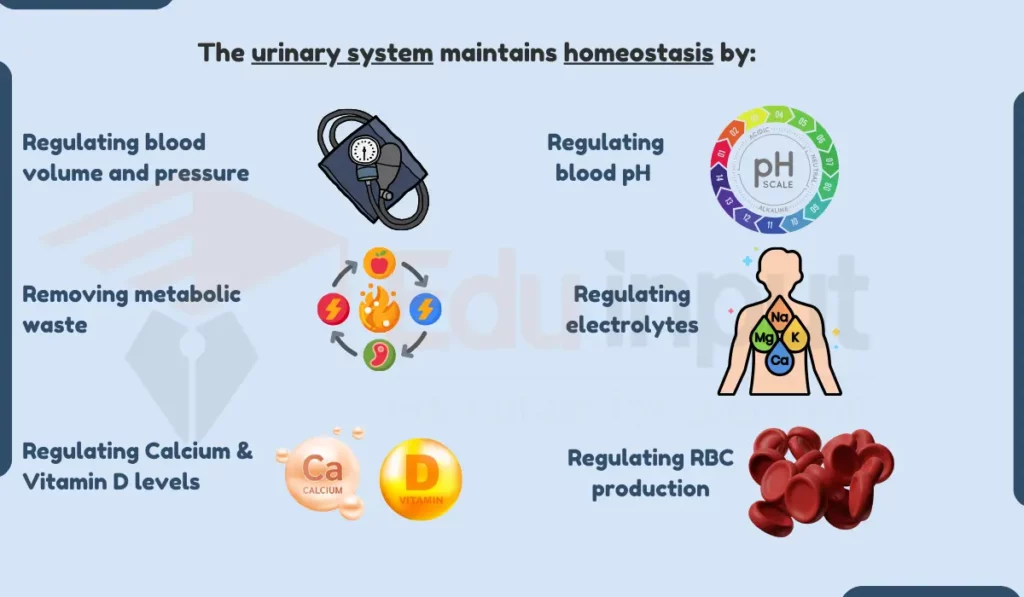How does urinary system maintain homeostasis?
The urinary system maintains homeostasis by regulating Blood pH, volume, composition of blood and regulating electrolytes. It does this by filtering out excess fluid and waste products from the blood and excreting them in the urine. The urinary system also helps to regulate blood pressure, pH, and electrolyte levels.

How urinary system maintains homeostasis?
Here is how does urinary system maintains homeostasis:
1. Regulating blood volume and pressure
The kidneys filter about 200 liters of blood per day and produce about 1-2 liters of urine. This process helps to remove excess fluid from the body, which is important for maintaining blood pressure and preventing edema.
The kidneys are also involved in regulating blood pressure by releasing hormones such as renin and erythropoietin. Renin helps to increase blood pressure, while erythropoietin stimulates the production of red blood cells, which can also help to increase blood pressure.
2. Regulating blood pH
The kidneys help to maintain the blood’s pH level within a narrow range. This is important because many enzymes and other proteins in the body require a specific pH level to function properly. The kidneys do this by excreting acids and reabsorbing bicarbonate.
3. Removing metabolic waste
The kidneys filter urea, uric acid, and other waste products from the blood and excrete them in urine. This prevents a dangerous buildup of waste in the body.
4. Regulating electrolytes
The kidneys maintain normal levels of electrolytes in the blood, such as sodium, potassium, and chloride. Electrolytes are important for many bodily functions, such as nerve and muscle function, fluid balance, and blood pressure regulation. The kidneys do this by selectively excreting or retaining electrolytes as needed.
5. Regulating red blood cell production
The kidneys secrete erythropoietin, a hormone that stimulates red blood cell production in the bone marrow. This helps maintain normal oxygen carrying capacity of the blood.
6. Regulating Calcium & Vitamin D levels
The kidneys help to maintain normal calcium levels in the blood by excreting excess calcium and reabsorbing calcium as needed. Calcium is important for bone health, muscle function, and nerve signaling.
The kidneys help to activate vitamin D, which is essential for calcium absorption and bone health.
7. Regulating Blood glucose levels
The kidneys reabsorb glucose from the blood and return it to the bloodstream. This helps to maintain normal blood glucose levels.
Also Read:
| How Endocrine System Maintains Homeostasis | How Does Circulatory System Maintain Homeostasis? |
| How Does Respiratory System Maintain Homeostasis? |

 written by
written by 





Leave a Reply